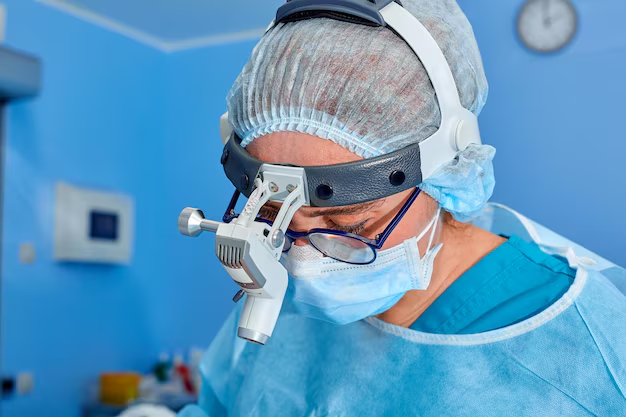Understanding the Safety of Cataract Surgery: What You Need to Know
Cataract surgery is a common procedure often recommended for individuals experiencing clouded vision due to the natural aging of the eye lens. With millions of procedures performed annually, it's natural to question, "How safe is cataract surgery?" Let's delve into this topic by understanding the procedure, examining its safety profile, and exploring what patients can expect before, during, and after surgery.
What is Cataract Surgery?
A cataract is a clouding of the lens in the eye, leading to a decrease in vision. Cataract surgery involves removing this cloudy lens and replacing it with a clear artificial lens. This procedure is typically quick and performed on an outpatient basis, meaning patients can go home the same day.
How Does It Work?
During cataract surgery, which usually takes less than 30 minutes, the surgeon will:
- Make a small incision in the eye.
- Use an ultrasound device to break up the clouded lens.
- Remove the pieces of the lens using suction.
- Insert an intraocular lens (IOL) to replace the natural lens.
Safety Profile of Cataract Surgery
Cataract surgery is often touted for its high success rate, but understanding the risks and recovery process is crucial for any potential patient.
Success Rates and Statistics
- High Success Rate: Cataract surgery is one of the most successful and frequently performed surgeries. Over 95% of patients experience significantly improved vision post-surgery.
- Minimal Complications: Complications are relatively rare, with less than 1% of patients facing severe issues.
Potential Risks
Although rare, there are certain risks associated with cataract surgery:
- Infection or Inflammation: These can be managed with medicated eye drops.
- Posterior Capsule Opacity (PCO): Often referred to as a secondary cataract, this condition can cause vision to blur again because of scar tissue.
- Retinal Detachment: Though rare, this requires immediate medical attention.
Preparing for Cataract Surgery
Being well-prepared for the procedure can help alleviate anxiety and improve outcomes.
Pre-Surgery Evaluation
- Comprehensive Eye Exam: Your doctor will evaluate your overall eye health and ensure you’re a candidate for surgery.
- Medical History Review: Discuss any medications or health conditions to provide a complete picture.
Day of Surgery
- Pre-Surgery Instructions: Follow instructions regarding fasting or medication adjustments.
- Transportation: Arrange for someone to drive you home post-surgery due to the sedative effects of the procedure.
Post-Surgery Recovery and Care
Understanding the recovery process is crucial for ensuring the success of cataract surgery.
Immediate Aftercare
- Protect the Eye: You may receive an eye shield to wear while sleeping.
- Follow Prescriptive Drops: These help prevent infection and reduce inflammation.
Long-Term Care
- Avoid Strain: For a few weeks post-surgery, avoid strenuous activities like heavy lifting.
- Eye Appointments: Regular follow-up visits with your eye care provider will ensure proper healing.
Benefits Beyond Improved Vision
Cataract surgery doesn't just restore vision; it can enhance quality of life in several other ways.
Enhanced Lifestyle
- Independence: Improved eyesight often leads to greater independence, particularly in seniors.
- Safety: Reduced fall risk and accidents due to better vision clarity.
Psychological Benefits
- Boosted Confidence: Being able to engage in social activities without visual limitations can improve self-esteem.
- Mental Health: Clear vision can lead to reduced stress and anxiety related to vision issues.
Making an Informed Decision
Weighing the benefits and risks will help in making the best personal decision.
Questions to Discuss with Your Doctor
- Am I a good candidate for cataract surgery?
- What type of intraocular lens (IOL) would be best for me?
- What should I expect during recovery?
Myths and Misconceptions
Understanding the facts can help in making an informed choice:
Myth: "Cataracts should be removed only when they are advanced."
Fact: Early intervention may prevent a decline in quality of life.Myth: "The recovery is painful and lengthy."
Fact: Most patients experience minimal discomfort and resume normal activities within a few days.
The Final Takeaway
Cataract surgery is not only about restoring vision but also about reclaiming quality of life. Through a reliable procedure with a high safety profile, millions achieve better vision and, subsequently, better living. Should you decide on cataract surgery, your journey will be supported by innovations in medical science that continuously enhance the procedure's safety and efficacy.
Quick Summary: Cataract Surgery Safety & Benefits
🔍 Key Points to Consider:
- Success Rate: Over 95% efficacy in vision improvement.
- Minimal Risks: Less than 1% experience severe complications.
- Recovery: Quick, with minor discomfort for most.
- Lifestyle Benefits: Enhanced independence and reduced fall risk.
- Psychological Boost: Improved confidence and mental well-being.
🤓 Next Steps:
- Consult Your Doctor: Discuss candidacy and lens options.
- Plan for Recovery: Arrange for assistance post-surgery.
- Schedule Follow-ups: Keep regular eye check-ups for optimal recovery.

Related Articles
- Are Cataracts Curable
- Are Cataracts Genetic
- Are Cataracts Hereditary
- Are Cataracts Nuclear Sclerosis
- Are Cataracts Painful
- Are Ivizia Eye Drops Okay After Cataract Surgery
- Are You Awake During Cataract Surgery
- Are You Awake For Cataract Surgery
- Are You Put To Sleep For Cataract Surgery
- Are You Sedated For Cataract Surgery
